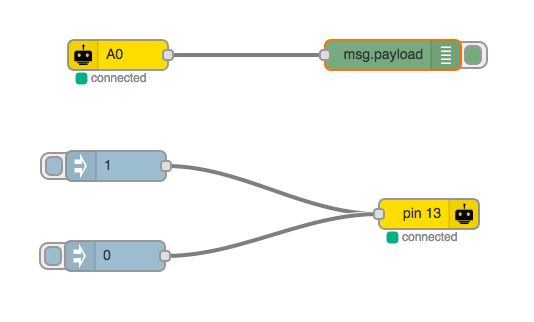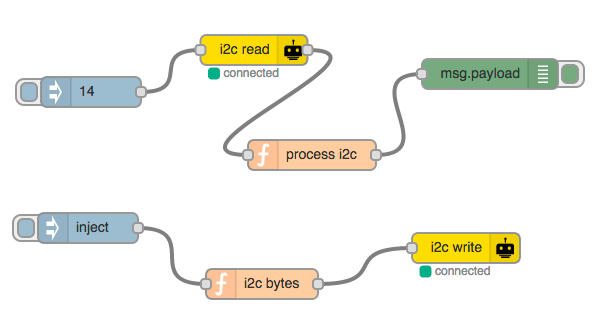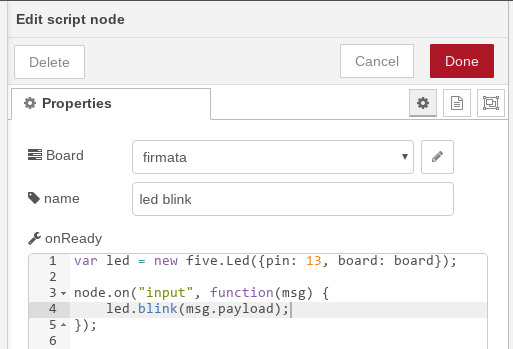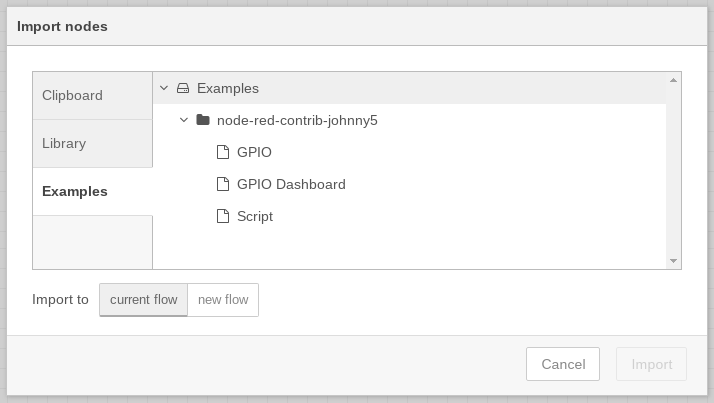A set of input and output nodes for controlling General Purpose Input and Outputs (GPIOs) though the use of Johnny-Five I/O Plugins as well as running Johnny-Five scripts!
- Support for NodeJS 12 and serialport 8.
- Johnny-Five 1.3
Search for node-red-contrib-gpio
From inside your node-red directory:
npm install node-red-contrib-gpio
node-red-contrib-gpio supports several Johnny-Five I/O classes:
| Device | IO Plugin |
|---|---|
| Arduino/Firmata | firmata |
| Raspberry Pi | raspi-io |
| BeagleBone Black, Green, Pocket | beaglebone-io |
| C.H.I.P. | chip-io |
| Galileo/Edison | galileo-io |
| Blend Micro | blend-micro-io |
| LightBlue Bean | bean-io |
| ble-io(esp32, curie) | ble-io |
| Circuit Playground(classic) | playground-io |
| Electirc Imp | imp-io |
| Particle(Spark) Core | particle-io |
| Odroid C2 | odroid-io |
Arduino is supported out of the box, but for other devices, you'll need to install their IO plugin.
For example to install the Raspberry Pi plugin:
npm install raspi-io
Please see the embedded examples.
If you're using Arduino/Firmata, you can connect to a remote device via a raw tcp socket, or an MQTT connection.
For example, if you wanted to connect using tcp, in node-red you could specify an ip and port. On another machine with an Arduino plugged in you could run a server that relays a tcp socket to a serial port such as: tcpSerialRelay.js
If you wanted to connect an Arduino to an MQTT server you can use a script such as: bindSerialToMQTT.js. In node-red you can connect to the same MQTT server and subscribe to the topic the arduino is publishing on, while publishing to the topic that the arduino is subscribed to.



